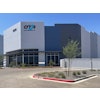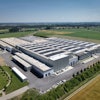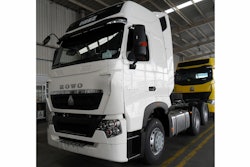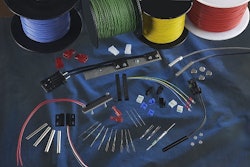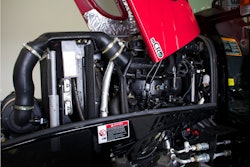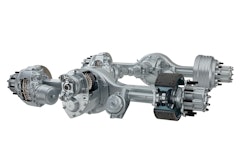
responses from Martin Richenhagen, Chairman, President & CEO AGCO Corporation
[GLOBAL] What are the emerging economies you see with the most potential for expansion and growth for agricultural equipment?
Significant opportunity exists in emerging agricultural regions around the world such as Africa, Brazil, India and China. We’re focused on getting the most relevant products and technologies to where they can make the most difference -- regions that have rapidly increasing demand and a need to exponentially improve productivity.
We’ve been a market leader in Africa for many, many years. We’re optimistic about growing our Africa market share because we have a good brand image, we have a long tradition -- through our global tractor brand, Massey Ferguson, we have more than 60 years of experience in Africa -- and we also have a good dealer and distribution network. There is great potential for farming in Africa, especially if the focus is on mechanization. In Africa, we have strengthened our position by establishing manufacturing capabilities in Algeria, investing in improved distribution and parts support, training local farmers on our model farm in Zambia and promoting international investment by sponsoring an annual Africa Summit in Berlin. Agriculture is the backbone of Africa’s future development – with the projected world population to reach 9.6 billion people by 2050, gaining world food security is key. Africa plays an enormously significant role in solving some of the world’s most pressing food supply challenges as a total of 15% of the world’s arable land lies in Africa, of which more than 80% remains unused -- nowhere else in the world is there such an abundance of untapped resources.
2013 was a record year for AGCO in South America; however, this year the market is more volatile. In Brazil, agriculture continues to be an important part of the economy and a source of future growth, and Brazil will benefit from the world’s growing demand for both food and fuel. AGCO intends to expand the existing GSI production capacities by investing into a brand new factory in Passo Fundo (State of Rio Grande do Sul). The new factory is due to open in 2016. The record crops of 2013 and 2014, and the continuous increase of grain production have shown that there is a need to develop the necessary infrastructure for grain storage. AGCO’s grain storage business GSI (equipment for grain storage and production of animal protein) will help to meet this demand in the future.
India represents an important agricultural equipment market for us too. Our global tractor brand, Massey Ferguson has been in India since the 1960s. We have a long-standing and strong partnership with TAFE who is our Massey Ferguson licensee in India.
China is one of the world’s largest farm equipment markets -- it’s a large and growing market for small and medium sized agricultural equipment. China also has a large, growing market for low/mid-horsepower tractors and its farm consolidation and government policies drive growth in high horsepower tractors and combines. AGCO’s strategy in China is focused on growing our import business, establishing domestic production and localization of tractors, and combines and leveraging China as a global sourcing and manufacturing base.
[GLOBAL] Have the current conditions in Russia/Ukraine or other international/regional situations affected that outlook and opportunity? If yes, how?
Our joint venture in Russia has just started, it is very young and is not a huge business for us yet; so, it is not really impacting our business. However, we have seen some other difficult market conditions internationally, but with a global company like AGCO we have been able to balance it all out. That being said, we also recognize that commodity prices and farm income are lower but they're still at historically high levels.
[POLITICS] What government regulations, standards and/or bills were passed in the past year that most affected agricultural equipment manufacturers?
We would like to highlight two issues in particular. First, the ongoing debate regarding the reauthorization of the Export-Import Bank of the United States (Ex-Im Bank). It is crucial that Ex-Im Bank receives long term reauthorization from Congress before it expires in June 2015. Export growth is key for the growth of agricultural machinery manufacturers like AGCO and its competitors. If Ex-Im Bank is not reauthorized, AGCO faces lost growth opportunities, as some of our customers will purchase from our foreign competitors that reside in countries with strong export credit agencies.
Second, the immigration reform debate is really affecting the agriculture business. AGCO supports common sense immigration reform. Many jobs in our nation are dependent upon immigrants, including highly skilled and agricultural positions. Corporations struggle to hire highly skilled immigrants due to the limited amount of H-1B visas allocated each year. At the same time, owners of farms and ranches are deterred from hiring agricultural labor by the restrictions and amounts of paperwork associated with hiring foreign labor.
[POLITICS] Were you able to get involved in the conversation on behalf of ag OEMs and your customers? Resolutions or positive outcomes you’d like to highlight?
AGCO is a member of several industry associations, chambers of commerce (nationally and locally) and other business organizations such as AEM and the Business Roundtable. As a member of the Business Roundtable, an association of CEOs of leading U.S. companies working to promote sound public policy and a thriving U.S. economy, AGCO was a part of the Business Roundtable’s report on immigration reform -- “Contributing to American Growth: The Economic Case for Immigration Reform.” To read the report visit http://businessroundtable.org/act-on-immigration/martin-h-richenhagen
[POLITICS] How do you foresee the effects of these regulations/standards continuing into the upcoming years?
AGCO supports several actions such as corporate tax reform, the Transatlantic Trade and Investment Partnership (TTIP) that will create more standardization when it comes to sending products to and from Europe and a more inclusive immigration reform policy. All of these regulations have the power to impact the agricultural business in a positive way. Unfortunately, due to the gridlock in the U.S. Congress, we expect the Administration to take more unilateral actions to increase the regulations on our industry.
[CONSOLIDATION] Have you seen an increase in industry consolidation through mergers and acquisitions this year over previous years? If yes, to what do you attribute this trend?
The agriculture industry only has three major players now – John Deere, New Holland and us. It’s not likely there will be any major acquisitions as the industry is pretty much consolidated. However, there may be smaller acquisitions or partnerships in the future to compliment the already existing products offering and offer more benefits to customers.
[CONSOLIDATION] What positive or negative effect has the industry’s trend toward consolidation and system co-development had on your business model and how you evaluate new projects and opportunities?
When I joined AGCO ten years ago, my biggest challenge was to create one global company out of the more than 30 acquisitions that happened during AGCO’s first 15 years of business. A majority of those acquired companies operated as separate businesses under the AGCO brand. Today, we are focused on organic growth and we have five global core brands -- Challenger, Fendt, GSI, Massey Ferguson and Valtra. The market for agricultural equipment has become a very consolidated one.
With less players and confusion in the equipment market, the industry goes into a clear direction when it comes to certain global standards and solutions. When we look at new projects, we take the need of our global customers into consideration.
[CONSOLIDATION] Now that Tier 4 Final is underway, many companies’ engineering resources have been freed up to refocus on developing new products instead of refining existing products to meet regulatory expectations. Have you seen this refocusing? What does this mean for future equipment designs and advanced system development?
Yes, we have seen some engineer resources been redirected to the development of the new projects and execution of the AGCO Fuse strategy. This has been really important for us. We can now focus on other areas of innovation.
[CLIMATE CHANGE] Have you seen extreme temperature and weather conditions affect the performance expectations of agricultural equipment and systems? If so, how?
When farmers are not as profitable because of bad weather, they will buy less farming equipment and due to weather issues on a global level, we see this happening now. Even though, there have been many good profitable years for farmers, but recently the market has not been as strong as it was. Weather does impact farming in many aspects, but row crop farmers have built some resiliency over the years with better quality mechanization, farming and tillage methods, and also becoming experts on the type of crop they farm. As we integrate our products and enhance our Fuse Technologies we see that farmers will be better prepared to expect certain climate. Weather conditions are a challenge, but equipment and systems actually help the overall crop performance than in low mechanized farming. There is some research that has taken place of the carbon benefits of agricultural intensification; research states that for every dollar invested in agricultural yields results in 150 pounds/68 kilograms of fewer carbon emissions relative to 1960s technology.
[TECH OF THE FUTURE] Where is the agricultural vehicle industry lagging technologically?
The agricultural industry is constantly developing and producing new technologies for farmers. As with all new technologies, there’s usually “a learning curve” for customers to fully integrate and adapt the new technologies into their systems and be able to benefit from its use. Not all farmers out there have been able to catch up with the technology already available. While looking into new technologies, we also have to ensure that our customers are using the current technologies properly and are profiting from it.
[TECH OF THE FUTURE] What technology breakthroughs would help to propel ag equipment ahead?
The big next step for the agricultural technology is autonomous vehicles, since manual labor is becoming an issue at a global level. This technology (autonomous) will probably be introduced at a premium price to the market, and it may take a while before it is fully introduced.
[TECH OF THE FUTURE] What current technologies have the most potential for future gains? For example, prognostics, telematics, robotics, drones, etc.
Telematics and drones have the bigger capacity for future gains. Telematics can assist dealers to better support their customers, and drones can assist famers to better monitor their operations and to make real time management decisions (at a lower cost).
[CHALLENGES] What new challenges have arisen that effect how you design and manufacture your product, how you do business and/or how you go to market?
Having to cut cost is always a challenge for any business, in any industry, and with the recent lower crop prices we are looking at cutting cost to help balance the offset and stabilize the market. However, we are very optimistic about agriculture this year – even with the lower crop prices – we see that farmers are still able to be profitable because the harvest this year is superb.


